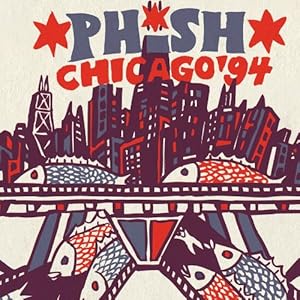Those purists looking for a genuine indie, or electronic. album may want to look elsewhere, as Fragrant World makes no apologies for being a genuine fusion album. The backbone of the songs are organic instruments, heavy on effects, and awash in synth to create a sound truly their own. This practice is often used in the indie scene, but is rarely done this well. Do not be fooled, however, Fragrant World is not in the vain of the electro pop making a wild run for Indie Rock's favorite sound. The beats are harsher and more convoluted, and the songs are not readily accessible. They will not get stuck in your head for the day, but make you reflect for a few minutes before moving on to the next. While the beats and tones are breezier and jazzier, the
In the past several years, Yeasayer has established themselves as Indie Rock guru's. They have an excellent concept of sound that they proudly display on all their albums. Fragrant World shows that the boys from Brooklyn continue to do what the Indie world has been trying to for years; find a delicate mesh of genres. The only difference is, with Fragrant World, Yeasayer found the perfect recipe.






